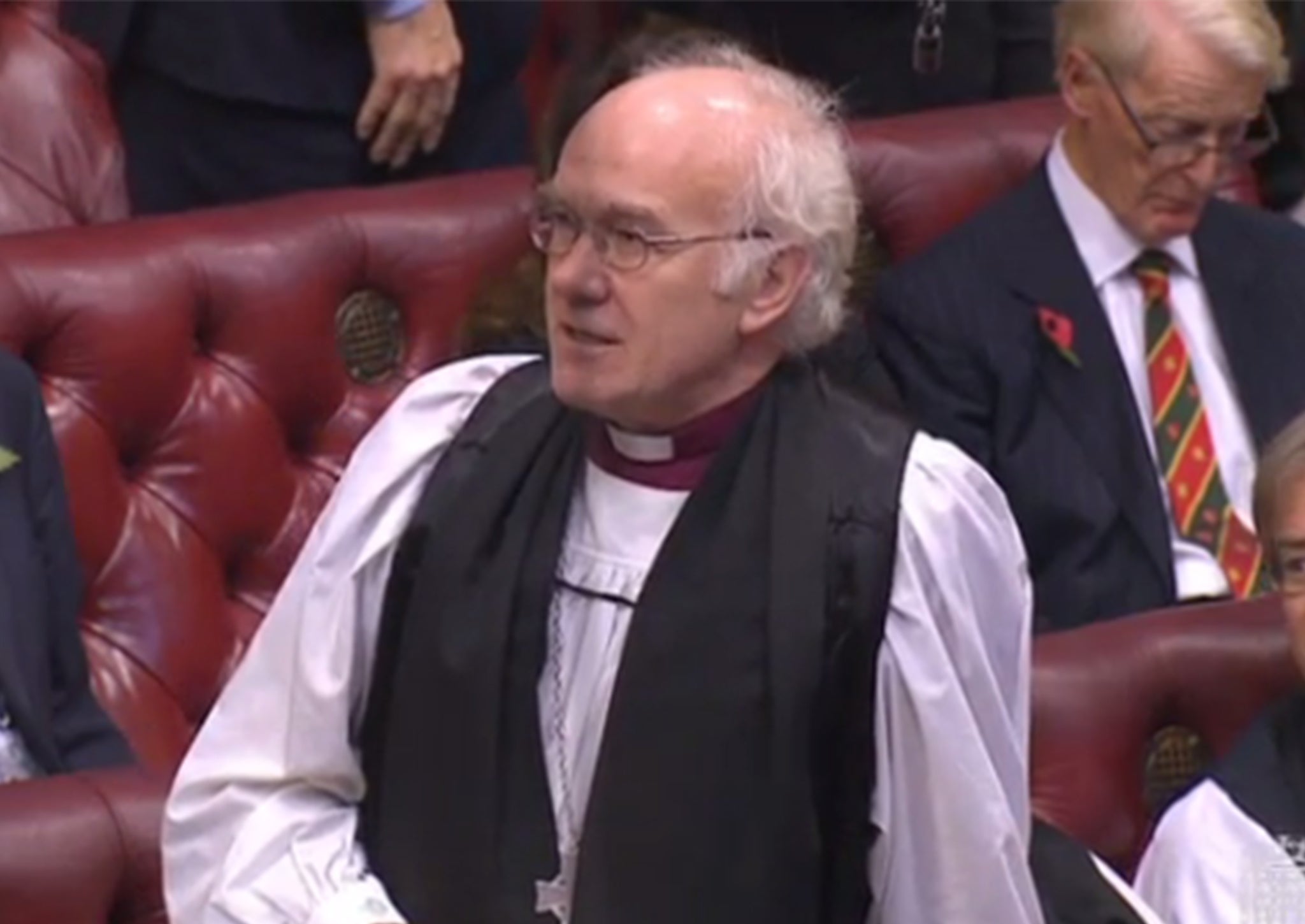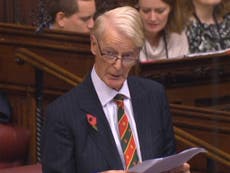The House of Lords' porn debate was another reminder of how desperately we need more young people in Parliament
At one stage it appeared that the only porn experienced by peers was 'an extraordinary exhibition of erotic Japanese prints' at the British Museum last year

A group of unelected men and women with an average age of 69 spent more than two hours discussing the impact of pornography on young people.
We heard an 82-year-old former surgeon claim that watching porn makes parts of the brain shrink, we listened to a 76-year-old Conservative peer explain why porn should be made illegal while trying to claim it was “as damaging and despicable” as climate change and we heard a 65-year-old bishop preach to us about the dangers of “ugly, squalid, dirty sex” seen in pornography.
But there was one big, important element missing from the debate: young people.
Time and time again peers proved themselves why the voice of young people were so desperately needed and why they were perhaps not best placed to debate such a topic. I lost count of the number of peers who opened their remarks admitting they were “not an expert on pornography”.
Admitting ignorance on a topic would usually disqualify or at least discredit a peer’s contribution on the matter. But not so in the House of Lords porn debate.
We heard bizarre descriptions of cyberspace, such as a 77-year-old Tory peer referring to “life in the internet world, a world of flickering images where we grown-ups cannot join them” – proof that the upper chamber is remarkably out of touch with modern day life.
At one stage it appeared that the only porn experienced by peers was “an extraordinary exhibition of erotic Japanese prints” at the British Museum last year.
And even when a call for porn to be outlawed was rejected, it was a Biblical reference that was used to explain why the idea would not work rather than the 1,001 21st century reasons why it would be practically impossible.
But by far the strongest argument for the inclusion of young people in the debate came from the government minister responding to the pornography debate.
“Young people know a lot more about technology than we do,” declared Baroness Shields, the minister for internet safety and security. “Young people are smarter with technology than we are,” she added; adults are “behind the curve,” and children “are way ahead of us”.
Her constant reference to “we” and “us” in her argument told the story itself: the upper chamber is largely the domain of the elderly and subsequently a demographic that is out of touch and least qualified to talk about the impact of pornography on young people.
The House of Lords offers valuable experience and expertise on a number of topics and plays a vital role in using these qualities to scrutinise legislation that has often been rushed through the House of Commons.
But why can’t the chamber use and draw upon the equally valuable experience and knowledge of what was vaguely and patronisingly referred to as “young people” 42 times in Thursday’s debate? After all, they spent much of the time explaining why young people were so much better qualified to speak on the subject of porn than they were.
The House of Lords is admirably leading the fight for 16 and 17-year-olds to be given the vote in the EU referendum – a decision that will have a much bigger impact on those currently too young to vote than it will on the older generation.
This proves that a significant number of peers trust the voice of young people. So why can’t those same voices be heard when it comes to discussing specific topics such as porn, that apparently has had such a major impact on their lives?
Perhaps a group of “young people” should gather in the House of Lords during next week’s recess to debate the impact on society of a certain peer who was suspended following reports that he snorted cocaine off a naked prostitute’s breasts. Teenagers and 20-somethings could discuss what kind of example Lord Sewel’s alleged behaviour set for “young people” and what affect his behaviour had on those working in the sex industry.
For now we will have to put up with peers preaching to us about why watching porn is morally wrong, why it “pollutes” our minds, why it reduces our brain capacity, why it has negative effects on relationships, “decency” and health.
But with reform of the upper chamber back on the agenda after forcing a government climb down on tax credits, the case for including the voices of “young people” in the House must be heard.


Join our commenting forum
Join thought-provoking conversations, follow other Independent readers and see their replies